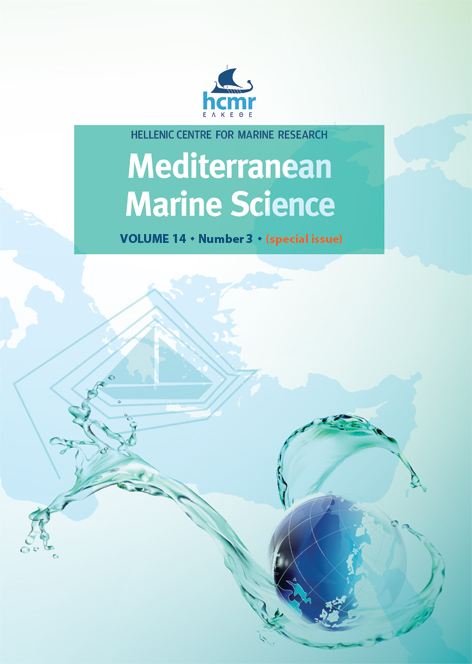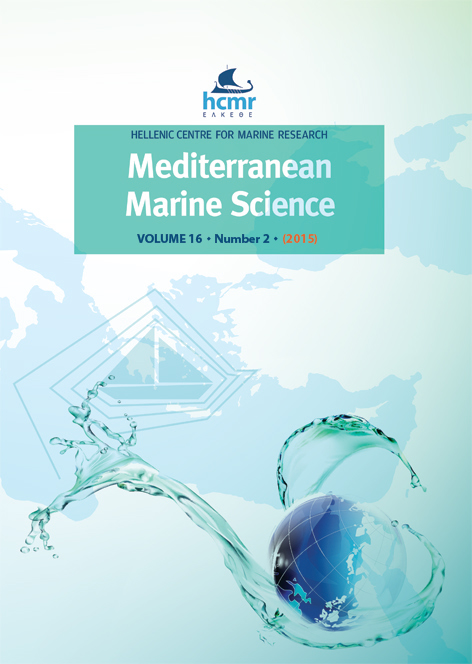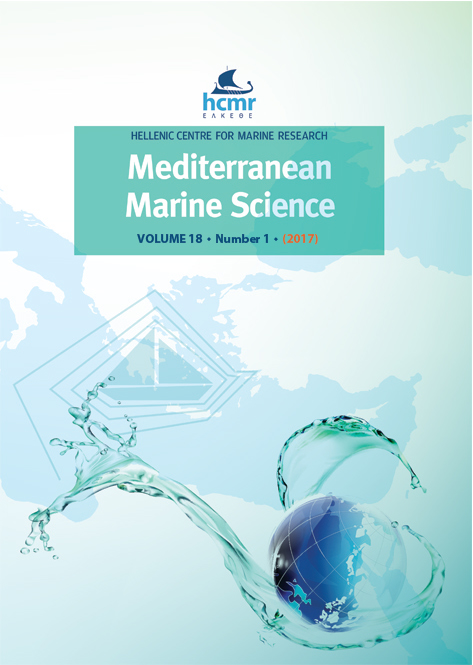Temperature and salinity variability in the Greek Seas based on POSEIDON stations time series: preliminary results
Περίληψη
Temperature and salinity time series provided by three POSEIDON monitoring stations (buoys) are examined in order to study the seasonal and interannual variability of the water mass characteristics. The sites at Athos (North Aegean Sea), E1M3A (Central Cretan Sea) and Pylos (Eastern Ionian Sea) were chosen, as these buoys provide measurements at various depths, while they represent 3 major basins respectively. The study of the T and S characteristics reveals important seasonal changes and highlights the particular characteristics of each basin. Dense water production in the Northern Aegean is found to be hindered by the presence of the surface Black Sea Water (BSW) mass. On the other hand, the intermediate water mass in the Cretan Sea is shown to be ventilated during the winter season. A significant temperature and salinity increase has been monitored over both the Central Cretan and Eastern Ionian Seas starting from the middle of 2008 and 2009 respectively. This could possibly be attributed to changes in the intermediate water masses of the Eastern Mediterranean, without ruling out the possibility of water mass exchanges between the two basins.
Λεπτομέρειες άρθρου
- Πώς να δημιουργήσετε Αναφορές
-
VELAORAS, D., KASSIS, D., PERIVOLIOTIS, L., PAGONIS, P., HONDRONASIOS, A., & NITTIS, K. (2013). Temperature and salinity variability in the Greek Seas based on POSEIDON stations time series: preliminary results. Mediterranean Marine Science, 14(3), 5–18. https://doi.org/10.12681/mms.446
- Ενότητα
- Research Article
Authors who publish with this journal agree to the following terms:
- Authors retain copyright and grant the journal right of first publication with the work simultaneously licensed under a Creative Commons Attribution Non-Commercial License that allows others to share the work with an acknowledgement of the work's authorship and initial publication in this journal.
- Authors are able to enter into separate, additional contractual arrangements for the non-exclusive distribution of the journal's published version of the work (e.g. post it to an institutional repository or publish it in a book), with an acknowledgement of its initial publication in this journal.
- Authors are permitted and encouraged to post their work online (preferably in institutional repositories or on their website) prior to and during the submission process, as it can lead to productive exchanges, as well as earlier and greater citation of published work (See The Effect of Open Access).








